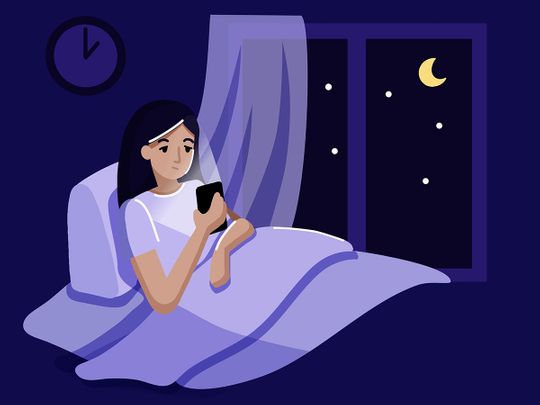
A stunning young woman who can’t get enough of her smartphone for social media and the internet. late at night, tired, bored, and fatigued from the combination of cell phone dependency and sleep deprivation. But what is revenge bedtime procrastination?
How Your Chronotype Affects the Depth of Sleep You Get
“Revenge bedtime procrastination” refers to the practice of putting off sleep so that one may engage in some activity that one did not get around to doing during the day. It’s a way to acquire more time for fun and games at the expense of rest and recuperation.
Procrastinating just before bed as a means of getting even
Not everyone who stays up late does so out of spiteful resistance to sleep. Recent research has shown three main features of those who delay going to bed.
Because of the delay in falling asleep, the overall amount of time spent sleeping must decrease.
There is no alternative explanation for this delayed bedtime, such as illness or an external factor that disrupts sleep. Instead, sleep disruption brought on by the surrounding environment is to blame for this lag.
The people engaging in this behavior are well aware that doing so might have negative consequences, but they persist in doing it nevertheless.
Who Pays the Price for Sleep Deprivation and Late Nights?
It’s not uncommon for folks to put off going to bed until they’ve had their revenge on an enemy. People in high-stress jobs, those who put in long hours at the office, and parents with few moments of quiet throughout the day are all prime candidates for frequent participation in this practice.
The Repercussions of Staying Up Late For the Sake of Payback
It’s unlikely that your sleep schedule, health, or happiness will be much affected by staying up late on a regular basis. The problem emerges when staying up late becomes a habit as a form of revenge. The combination of late nights and early mornings might lead to sleep deprivation. Your ability to function the next day might be negatively impacted, and your physical and mental health could suffer as a result of chronic sleep deprivation.
Prioritize your sleep. Putting sleep at the top of your list of priorities is the first step if improving your sleep quality is a top priority for you. Go to bed at a decent time to help you remember how vital it is to get adequate sleep. You will have a higher chance of having the endurance to go through the tasks you need to undertake the next day if you have a good night’s sleep the night before.
Create some regular habits for your sleep schedule
The amount and quality of your nightly slumber might be improved with the help of a regular regimen of good sleeping practices. You should attempt to stick to a set bedtime and waking time, limit your alcohol and caffeine intake, especially in the late afternoon and early evening, and create a relaxing.
Conclusion
Examine the demands made of you on a daily basis, since a jam-packed schedule is a common source of nighttime procrastination as a sort of bitter revenge. Get rid of the things you’re doing that aren’t important and are taking up too much of your time. Changing up your routine might help alleviate feelings of sadness and discontentment when you’re doing the same things every day.